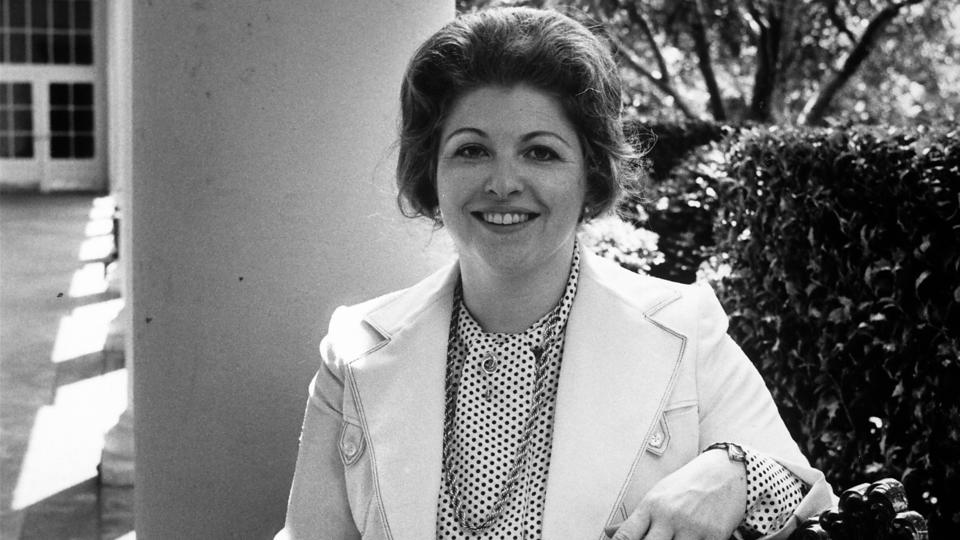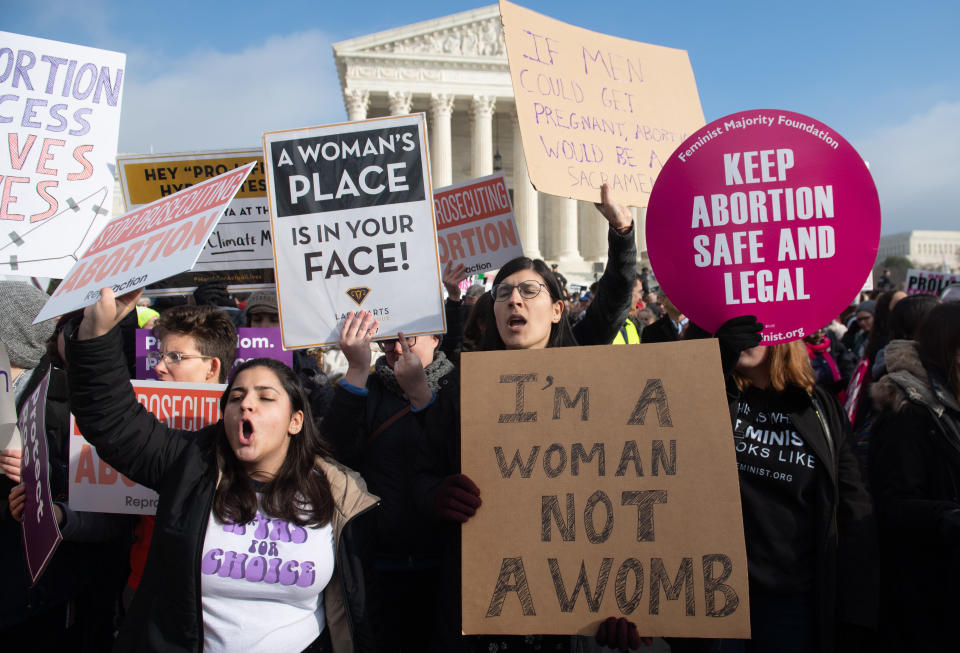Attorney who successfully argued Roe v. Wade reflects on case's 46th anniversary: One of the 'most crucial issues in American life'

Forty-six years ago Tuesday, an all-male Supreme Court made its landmark decision on Roe v. Wade, allowing American women the right to a safe and legal abortion. The woman who successfully argued for that right was attorney Sarah Weddington — just 26 years old at the time, and believed to be the youngest person to have ever argued a winning case before the Supreme Court.
On Jan. 22, 1973, Weddington’s assistant picked up the phone to find it was a reporter from the New York Times, asking for comment from Weddington on the SCOTUS decision.
“‘How was it decided?’” Weddington recalls her assistant asking. “And the reporter said, ‘She won it —7-2.’”
But while her pivotal role in the landmark decision is what the lawyer is best known for, the Texas feminist had been defying those who said women “can’t” long before that — and continued to do so long after.
Yes, she can

As the daughter of a Methodist minister in Abilene, Texas, Weddington says she was always “different,” but not in the stereotypical “pastor’s daughter” way, as she was raised with the “gospel of Christian social concern.”
“[My father] was very much a person who taught … that we should care about what’s happening to people around us, and issues, and then we should try to do something,” Weddington says. And what she noticed all around her, she says, were the countless barriers women faced because of their gender.
“The things they said to me ‘you can’t do,’ I wanted to push back barriers so other women could do those things,” Weddington, now 73, says proudly.
In high school, she played basketball, though girls were only allowed to play half-court. Of course, the young feminist challenged her coach as to why women couldn’t play the full court like their male peers. “I was one of those women saying, ‘Why can’t we just keep running?’” says Weddington.
“I learned that when people said, ‘Women can’t, women don’t, women shouldn’t,’ that often we should try,” she says. “And many times when you try, you’re able to do it.”
After graduating college at age 19, Weddington became interested in attending law school. But the University of Texas Law School dean told her that the program was “too tough” for women. Weddington, naturally, took this remark as a challenge — and succeeded despite the dean’s discouragement, becoming one of five women admitted to the law school in 1964.
“Later there was an article in a local paper that said, ‘First McMurry [University] Graduate Graduates Law School,’” Weddington remembers laughing. “I wondered what [the dean] was thinking that day.”
Give her some credit

Next up, Weddington tackled credit inequities, having been inspired to take action after she applied for a credit card and a bank teller denied her application because she needed a signature from her father or her husband.
“I thought, ‘I’m putting him through law school. Why should I have to get his signature?’ That seemed to me very unfair,” she says.
Weddington would later right this wrong when she became the first woman from Austin elected to the Texas House of Representatives, and passed an equal credit bill for women. During her three terms in the Texas House of Representatives, Weddington continued to be a fierce advocate for women by reforming rape statutes and blocking anti-abortion legislation.
She went on to become the first woman ever to serve as general counsel of the U.S. Department of Agriculture and the first female director of the Texas Office of State-Federal Relations.
Making history

Despite making headlines for completing law school, however, Weddington didn’t receive any offers from law firms following her graduation.
Instead, she met a group of graduate students running an underground newspaper, The Rag, which provided information to women on birth control and where to get safe but still illegal abortions. Having had an abortion herself after an unwanted pregnancy with her boyfriend (later her husband, Ron Weddington), she understood the importance of the publication’s work.
“It did not mean because abortion was illegal in Texas that there were no abortions. It just meant that abortion was not safe,” says Weddington. “And often it was very dangerous and done under terrible circumstances.”
Other Makers recall this time as one marked by a fear of becoming pregnant and having to resort to dangerous extremes. Although Weddington herself underwent an abortion in Mexico, women across the country were suffering from irreparable injuries from self-induced abortions and back-alley procedures.
“All of the public hospitals in Texas had what we called the ‘IOB’, the ‘infected obstetrics‘ wards. And they were places set aside for women who had tried to self-abort or who’d been to really bad places and who ended up with all kinds of problems — infections, losing their fertility,” Weddington says of the pre-Roe v. Wade era.
She offered the publication legal advice after the university tried to prohibit its distribution, and then went a step further by challenging the Texas abortion law itself.
The night before her testimony on Dec. 13, 1971, Weddington recalls that she couldn’t sleep — and with good reason.
“I was very conscious of how the fate of many women for many years would be resting, in part, on my argument,” Weddington says in an interview with Makers. The next day, the young Texas attorney would stand before the U.S. Supreme Court to deliver the argument on behalf of Jane Roe and all American women.
It would take more than a year for the Supreme Court to hand down its verdict, with the young attorney successfully securing a woman’s right to choose.
What’s next

Now, the legacy of that historic case is in jeopardy, as women’s reproductive rights hang in the balance. President Trump and Vice President Mike Pence recently gave surprise speeches at the anti-abortion March for Life in D.C., while a wave of strict anti-abortion laws has passed through Ohio and Mississippi. But the most alarming development, according to abortion rights advocates, is the confirmation of conservative judge Brett Kavanaugh to the Supreme Court, which many believe could lead to Roe v. Wade being overturned. The Senate confirmed the former D.C. circuit court judge in October 2018 despite allegations of sexual assault brought forth by Dr. Christine Blasey Ford, sparking an outcry of women demanding that the country believe survivors.
“If anybody had said then, ‘You would still be talking about this in [46] years,’ I never would have believed that it would be a major issue,” says Weddington. “Here we are … years later, and it is one of the most important and most crucial issues in American life.”

